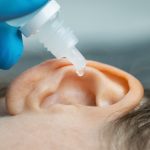Maintaining good hearing health is essential for overall well-being. While many factors contribute to hearing health, diet plays a crucial role. Consuming a balanced diet rich in essential nutrients can help prevent hearing loss and support overall ear health.
Your diet impacts various aspects of your health, including your ears. A nutritious diet can protect your ears from damage and improve hearing functions. Understanding this connection can motivate you to make healthier dietary choices. Certain nutrients are particularly beneficial for hearing health. Vitamins and minerals like vitamins A, C, D, E, magnesium, and zinc play critical roles in maintaining ear health. These nutrients help protect the delicate structures of the ear and support overall auditory function. Additionally, a diet lacking in essential nutrients can contribute to hearing loss. For example, deficiencies in vitamins and minerals can impair blood flow to the ears, leading to damage over time. Eating a balanced diet rich in these nutrients can help prevent hearing loss and keep your ears healthy.
Key Nutrients for Hearing Health
Incorporating specific nutrients into your diet can support your hearing health. Here are some key nutrients to focus on and the foods that contain them. Vitamin A is essential for maintaining the health of the inner ear. It supports the function of the cochlea, a critical part of the auditory system. Good sources of vitamin A include carrots, sweet potatoes, spinach, and kale. Vitamin C has antioxidant properties that protect the ears from damage caused by free radicals and supports overall immune health. Citrus fruits, strawberries, bell peppers, and broccoli are excellent sources of vitamin C.
Adding In Vitamin D
Vitamin D supports bone health, including the tiny bones in the ear that are essential for hearing. It also helps reduce inflammation. You can get vitamin D from fatty fish, fortified milk, and sunlight exposure. Vitamin E improves blood circulation, which is crucial for ear health, and has antioxidant properties that protect ear cells. Nuts, seeds, spinach, and avocados are rich in vitamin E. Magnesium helps protect against noise-induced hearing loss by improving blood flow to the inner ear and reducing ear damage. Bananas, almonds, spinach, and black beans are good sources of magnesium. Zinc is important for maintaining the immune system and can help prevent ear infections. It also supports overall ear health. Meat, shellfish, dairy products, and whole grains are rich in zinc.
Practical Dietary Tips for Hearing Health
Incorporating the right nutrients into your diet can be straightforward. Here are some practical tips to help you eat for hearing health. Start by eating a balanced diet that includes a variety of fruits, vegetables, lean proteins, and whole grains. This ensures you get the necessary nutrients for hearing health. Aim to fill half your plate with fruits and vegetables at each meal. Including omega-3 fatty acids in your diet is also beneficial for hearing health. These fatty acids, found in fish like salmon, mackerel, and sardines, improve blood flow to the ears and reduce inflammation.
Hydration Is Key
Staying hydrated is another important aspect of maintaining overall health, including ear health. Drinking plenty of water helps maintain fluid balance in the body, which is essential for proper ear function. Limiting processed foods is also crucial. Processed foods often lack essential nutrients and contain high levels of sodium and sugar, which can negatively impact hearing health. Opt for whole, unprocessed foods whenever possible. Lastly, snacking on nuts and seeds is an excellent way to get vitamins and minerals that support hearing health. They make for a convenient and nutritious snack option.
The Role of Regular Hearing Health Exams
While diet is crucial for maintaining hearing health, regular hearing health exams are equally important. These exams can detect early signs of hearing loss and ensure your ears are in good condition. Regular hearing health exams can identify hearing loss at an early stage, allowing for timely intervention, which can prevent further hearing deterioration. During these exams, a provider can provide professional advice on how to maintain your hearing health. They can recommend dietary changes and other lifestyle adjustments to support your ear health. Additionally, hearing health exams offer personalized care tailored to your specific needs. Whether you need hearing aids, dietary advice, or other interventions, regular exams ensure you receive the appropriate support.
Eating for hearing health is an effective way to support your overall well-being. By incorporating essential nutrients into your diet and following practical dietary tips, you can maintain healthy hearing and prevent hearing loss. Remember to complement your healthy eating habits with regular hearing health exams to ensure your ears stay in top condition. Prioritizing your hearing health today can lead to a better quality of life tomorrow.






